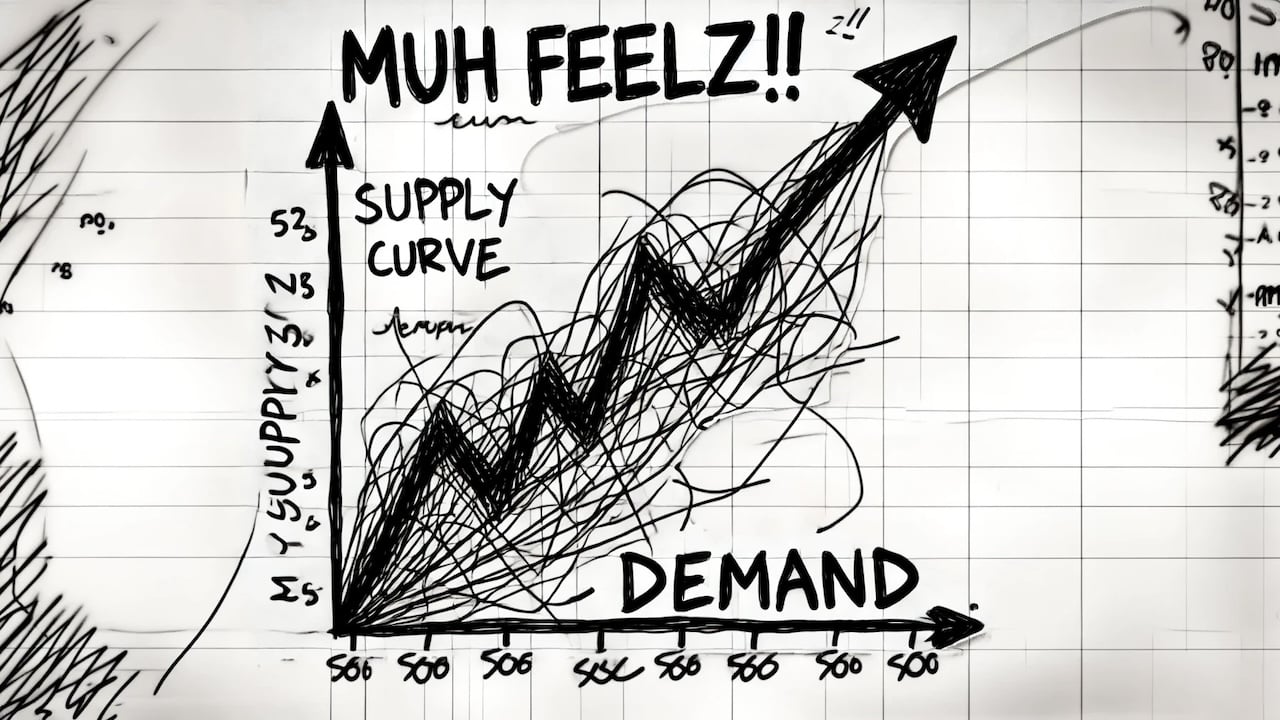(Mike Maharrey, Money Metals News Service) As I sit here and watch outer bands from Hurricane Helene spin into the area, I thought this would be a great time to teach a little economics.
I know this is a fruitless endeavor, but I have to at least give it the old college try.
As is always the case in the run-up to a major storm, the Florida governor declared a state of emergency a few days ago. This activated one of the most misguided and counterproductive economic policies imaginable.
But it is extremely popular because it sounds nice.
I’m talking about a ban on “price gouging.”
Attorney General Ashley Moody announced she activated Florida’s “Price Gouging Hotline” right after Gov. DeSantis declared a state of emergency.
“During a storm-related declared state of emergency, state law prohibits excessive increases in the price of essential commodities, such as equipment, food, gasoline, hotel rooms, ice, lumber and water needed as a direct result of the event.”
It sounds so good, right? Your benevolent overlords in Tallahassee are protecting you.
But it’s dumb.
And in the big scheme of things, it’s hurting you, not helping.
I recently wrote about the economic absurdity of Kamala Harris’s plan to ban price gouging on groceries. Price gouging bans during storms are equally absurd from an economic standpoint.
Nevertheless, “price gouging” bans sound good in theory and that means they will probably never go away, no matter how harmful they might be in reality.
People have a visceral emotional reaction to people raising prices during a disaster. But it is nothing but feelz.
In fact, “price gouging” serves an important economic function. Not allowing prices to rise causes more harm than good. But trying to explain this to the average person is like spitting into the wind. (Hurricane pun intended.)
I mean, I get it. The idea of greedy people profiting from people’s pain during a storm is pretty cringey. And I don’t deny that some price gougers may well be greedy. But that doesn’t mean prices shouldn’t be allowed to go up during an emergency.
From a purely economic perspective, so-called price gouging during a disaster is purely a function of supply and demand. Prices rise as demand goes up and supplies tighten. That’s economics 101.
And when government steps in and interferes with the free-market pricing system, it creates all kinds of bad (but generally unseen) consequences. It might make you feel better, but it’s not helping.
Pretend the weather people tell you it’s going to rain every day for two months. You’d probably run out and buy an umbrella, right? Most people would if they didn’t have one already. Under these circumstances, the price of an umbrella would go quickly skyrocket.
Now, if umbrella prices were forced to remain low, say because some knucklehead politician passed a law declaring you can’t raise the price of an umbrella when the weatherman predicts rain, you might buy a bunch of umbrellas. You might purchase one for each member of your family and a couple of spares – just in case. But if prices spiked in response to demand, you would probably make do with one or two, leaving some umbrellas for somebody else.
Nice, right?
The rising price would also help boost supply. If umbrellas got expensive enough, some guy in a less rainy locale with lower umbrella demand might be willing to drive in a shipment of bumbershoots. It would be worth it to pay transportation costs so he could take advantage of the higher prices he could charge in the rainy market. The increase in supply would likely push prices back down, or at least keep them from rising even higher.
But if the knucklehead politician gets his way, the price can’t legally rise and our intrepid umbrella entrepreneur will just stay home and sell sunglasses.
All of this makes perfect sense, right?
Doesn’t matter.
No matter how much sense it makes, or how well I explain the economics, most people will get angry and start rambling about greed. I can’t win this argument.
Muh feelz always trump economics.
Of course, these same people will pay $5 for a bottle of water at a baseball game or the airport. But when you ask them to pay $3 for a bottle of water before a storm, they want to make it a federal crime. Never mind that while people are yelling and screaming about “price gouging,” there’s nothing left to buy.
Too bad there were no price signals to direct supply and demand.
(Never mind the fact that a sane person living in a hurricane-prone area prepares for storms ahead of time and already has water on hand. But that’s a different article.)
Here’s the thing: economic reality doesn’t care about your feelings.
And price gouging just feels – wrong.
So, we cheer for the knucklehead politician and gripe when the shelves empty before a storm.
The problem is you can see the results of price gouging. You feel the pain of the higher prices. It’s easy to finger-point at the greedy guy.
Of course, you may also feel the pain of shortages. You see the empty shelves. But virtually nobody understands that the anti-price gouging policy caused it. The cause and effect are hidden
It’s a classic example of economist Frédéric Bastiat’s seen and unseen. Good economists consider both the obvious “seen” effects of a policy as well as the less obvious “unseen” effects.
Unfortunately, most people aren’t good economists.
Mike Maharrey is a journalist and market analyst for MoneyMetals.com with over a decade of experience in precious metals. He holds a BS in accounting from the University of Kentucky and a BA in journalism from the University of South Florida.

